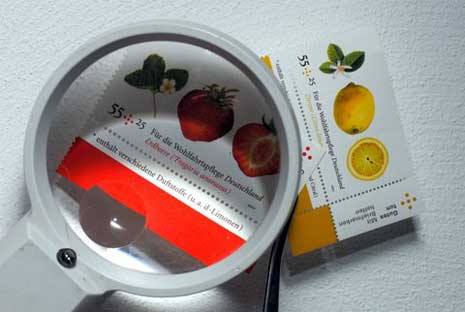
Let me live!
Patrick is 19. His American football gear is in his closet, and in the corner of his room his electric guitar lays on the shelf next to the brilliant lyrics he wrote. His songs have a meaning, not just modified, banal versions of some well-worn songs that were eventually on the top of the charts. No way. Patrick’s music gets down to business and strongly suggests that the songwriter is not a wimp, but instead confident and that he has something significant to say. When Patrick wrote the songs/music, he went to high school, which earlier posed no problem for him, and he enjoyed a life outside of school as well. His buddies were always with him. Life then was to be lived! But now the American football equipment, the guitar, the unfinished recordings, and song books remain on the dusty shelves.
Those were the times
When Patrick lies on his bed in his room it seems like decades since he was with his band buddies on the stage. Sometimes he has flashbacks where he again sees the faces of the girls in front row of the stage, glowing, looking reverently up and so moved by the band’s damn good music. When these flashbacks return, Patrick is reminiscent of the life he used to live. Patrick would like to scream really loud so everyone can hear:
“My body and my pain hold me prisoner. I cannot leave and live like others. A broken body makes me a cripple. It forces me to not always do things that I would like to do. But I want to live.”
Causes and effects
Patrick is sick from chemicals and his body has developed an extreme form of chemical sensitivity (MCS). Some chemicals have the capacity to sensitize the body. In medicine, this is well known that some chemicals like formaldehyde, isocyanates, and some pesticides are able to cause illness. Everything has played a role in Patrick’s current condition. His father was a chemist and had 30 years of contact with chemicals which are capable of damaging genes. No one can define precisely the effects of the countless years of exposures from the not so harmless chemical cocktails where Patrick’s father worked. The fact is, that Patrick’s father, because of work-related health issues, no longer has his health and is seriously ill. Perhaps the house where the family lived also played a role in the illness. Seven times they had high water which left mold on the walls. The walls were washed extensively with chlorine, a highly toxic chemical. Also the wood preservatives in the house could have played a part in Patrick’s state of health.
Others have lived at least
The average age of people who are chemically sensitive, is from 35-45 years, according to studies. There are also sufferers who are much older and some who are still toddlers, but the majority of sufferers had a life before MCS. For Patrick, it’s different:
“Excuse me, I don’t want to offend the others, but the other MCS sufferers were allowed to enjoy prior life experiences (youth, school, training, travel, friends, partnership, etc.), but I was denied everything from the beginning. The best time of life, my youth, has not been granted to me. On the contrary, I am going through hell, but no one is interested, because they do not believe me.”
Ciao buddy
After Patrick broke down completely, the compassion of his buddies and classmates was just great. They came to visit him and provided him with information from school. That gave him the opportunity to continue his school for awhile. When that was no longer possible, he tried getting his education on the internet, via a correspondence school. But now that is over. No more calls, no more visits. Patrick experiences unbearable pain as he feels like he too is covered in dust like his guitar. The girlfriend he had whom he wanted to build a life with, now also lives a life without him, perhaps with someone else. Patrick experiences pain on another level besides just the excruciating physical pain of the illness. He is furious and says:
“I cannot believe that since I’m not out there, I must not be forgotten and do not exist. My struggle must not be in vain.”
“It is hard to accept that everything I have achieved to this point is destroyed.”
“I have resigned myself that I will probably always remain living alone. There is no compassion for this disease. In fact, on the contrary, I am immediately excluded. What girl or young woman is prepared to make such a sacrifice, and how will I even find a person when I need to live a life of isolation? Forget it. This also applies to other friendships as well. ”
“Although various people helped me earlier, now only two friends remain – I’ve always given everything and now … I’m just dropped, since I cannot keep up and have become too annoying or too complicated to all the others.”
To go out at least once
Besides all the bad luck Patrick and his parents experienced in the past, they also lost their most faithful companion too. So Patrick’s mother bought a new dog so that her son has some life in the house and finds some comfort through the love of an animal. The decision was good for the dog and he is very fond of Patrick:
“As much as I would love to be in nature for a couple of hours with our dog for training or just playing only with him, I am not even granted this.”
Simply cut the strings and let the frustration out
If Patrick was frustrated, it was hard to miss. He grabbed his guitar and the sparks were flying as he sang until the walls shook. That has not happened often, but when it did, everyone in the house knew after two minutes. Music is life and a way to express yourself, to let out what the mind has suppressed. But even allowing the frustration and the anger to be let out, is no longer possible for Patrick:
“Playing guitar and singing means so much to me, but my damn body does not even allow that. The muscle weakness and pain again slow me down, and of course, my dream of American football is over.”
MCS means in the worst stage of a “life” in total isolation
Patrick is one of the MCS patients who having a life outside the four walls is impossible. It should not be confused that these people do not want to be, among others, but on the contrary, the wish and desire to do something with other people remains every day around the clock. It is not a psychological problem or fear of people. The body simply gives up when exposed to chemicals. Car exhaust, heater exhaust gases, perfumed people, houses, from which wafts the cleaning products. All chemical cocktails present a difficulty for chemically sensitive people to have a chance to move about.
A short contact with the outside world means having extreme pain, seizures, difficulty breathing, collapse, or unconsciousness. The same applies for visiting. If someone comes to visit, the joy for Patrick can quickly lead to disaster. The deodorants or residues from the dry cleaners in the jacket, fabric softeners, which cannot be totally washed out will make the visit impossible. Utter nonsense? Not at all. Who will make the effort to find appropriate ingredients for “everyday products” that will bring about severe consequences for a man whose body is hypersensitive? What companies will makes the effort to accommodate hypersensitive individuals as they produce products? Not even most doctors will attempt to understand this chemical hypersensitivity. This is due partly out of ignorance, because they have never heard of the disease, and simply because they lack time to investigate further. And if doctors are not smart and declare the disease as a quirk of convenience, how can ordinary people understand those with MCS?
Patrick’s opinion on MCS:
“MCS is the worst disease out there; sometimes I wish I was a paraplegic. I know this sounds harsh, but I would not be so isolated, left alone, not credible, and would have no pain. I could travel in spite of this handicap, going almost everywhere, going to concerts, meeting friends, and possibly make training, and, and. “
The whole family is ruined
Patrick’s parents are willing to do anything for their son, so he can have his life back. But MCS is too complex to just fight the disease with medicine and a few natural remedies. One must start by establishing a clean living environment. Patrick and his father would need a living space that is chemical-and mold-free as much as possible. But how do you implement that? The house in which they have is hard to change due to the financial loss due to his father’s illness.
Help from authorities? No
Patrick should actually have a good case for the authorities to help, but because he has no education, there is no funding, no basic security, which is humiliating for the young man. His mother says:
“We get help from nowhere, in fact, it is quite the opposite. We are harassed by authorities and they make demands on Patrick which he cannot satisfy. Anyone who can count to three must see that. But nobody takes the trouble to look at the misery, instead, decisions are made that are devoid of any humanity. Yes, Patrick virtually exists only on the card. This illness ruined my two men and those who might know how to help and change things for us, look away too easily! ”
“Many people ask me, how has this total isolation been for over the last two years? They say to me, “I would go mad …. I would go crazy … I imagine the bad, and, and …” They also ask, “Where does Patrick, or where do you get the strength to keep going?”
The response from Patrick’s mother: “You can see that Patrick lives and we also manage. Somehow we are probably fighting spirits and do what we try to be bold, brave, and strong willed to survive. The struggle for justice makes us stronger. “That’s what Patrick’s mother says to the outside world, but inside she often thinks, how long does will the body last, like the heart muscle. Every day she must be available around the clock for her men. Every day is actually a struggle for survival, for Patrick, as well as his father.
Optional: a human decision
That which was given to Patrick and his parents since March 2009, is staggering. His parents submitted an application to determine his level of disability. Now a court ruling says that the 19-year-old man who is suffering from unbearable pain all day, and reactions to chemicals must go into a hospital. The hospital has assured the court that it is equipped for emergencies so there shouldn’t be any problems.
- What if he’s there and collapses completely? Who bears the responsibility for him then?
- Who pays to stay in a hospital environment abroad, because in Germany there is no help?
- Can a normal emergency procedure help him to bounce back?
- What if not?
There are no environmentally controlled hospitals for MCS patients in Germany. No hospitals can assure a complete freedom from chemical exposures at all. The hospital rooms discussed in a previous CSN article which are in Hamburg for the environmentally ill, are still not in full operation and they are also only for medical intervention, not for environmental treatment. Thus Patrick’s health would possibly be further compromised by this current court ruling the way it now stands.
So far, instead of support costs caused
Administrative expenses have already cost a fortune for Patrick, a 19 year old, with unbroken will to live. Legally, there is the possibility of seriously ill people remaining in their homes, and being examined within the safety of their own four walls. For Patrick, allowing this would be an act of humanity. This young man wants nothing more than for his disability to be determined. His disability and disease are detected nowhere better than in his own home where everyone can see with their own eyes what the illness actually means for Patrick and his family.
Authors: Silvia Müller and K. Kira, CSN – Chemical Sensitivity Network, 9 July 2011
Translation: Christi Howarth
Note: Patrick’s documents are complete before CSN.
Related articles:
 Mary Lamielle, executive director of the National Center for Environmental Health Strategies, is one of fourteen Camden County, New Jersey, residents chosen to receive the 2012 Camden County Freedom Medal, honoring the legacy of Dr. Martin Luther King, Jr., for their unselfish contributions to improving their community.
Mary Lamielle, executive director of the National Center for Environmental Health Strategies, is one of fourteen Camden County, New Jersey, residents chosen to receive the 2012 Camden County Freedom Medal, honoring the legacy of Dr. Martin Luther King, Jr., for their unselfish contributions to improving their community.



